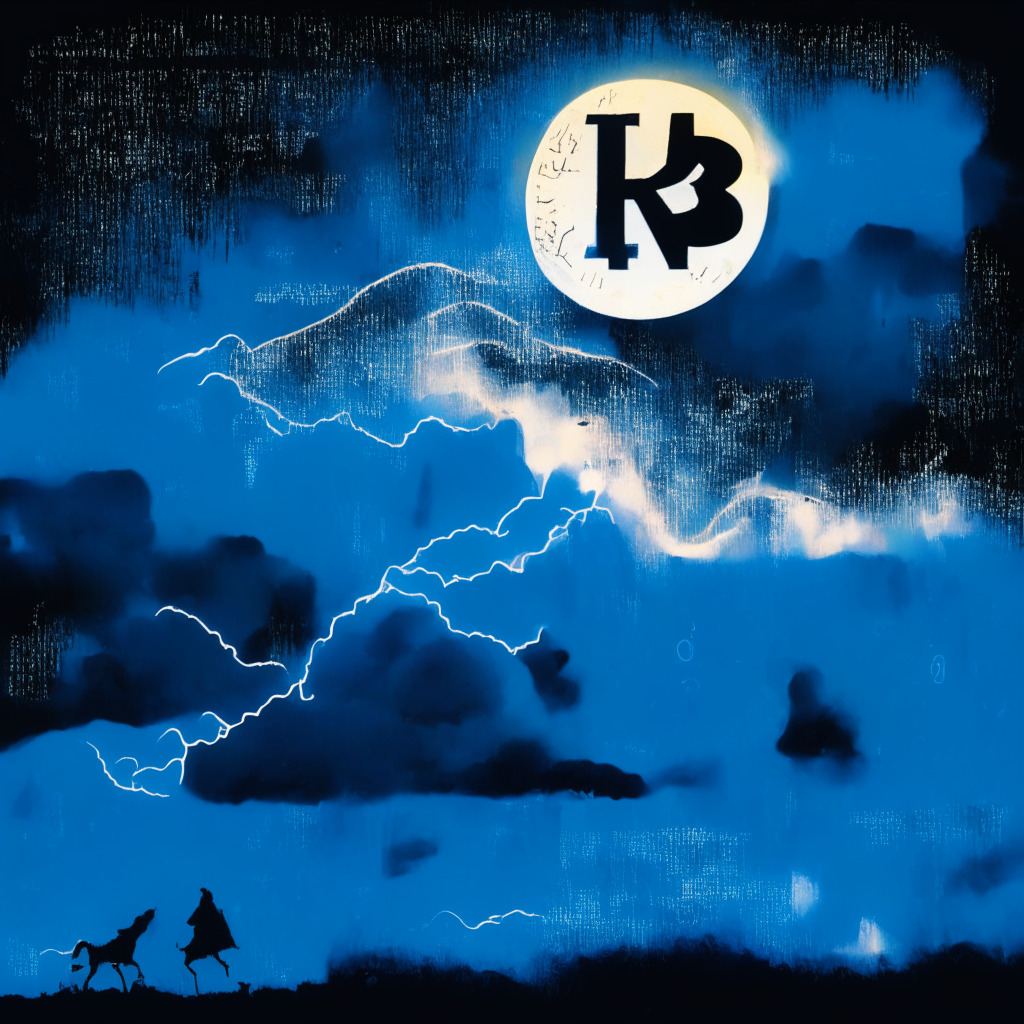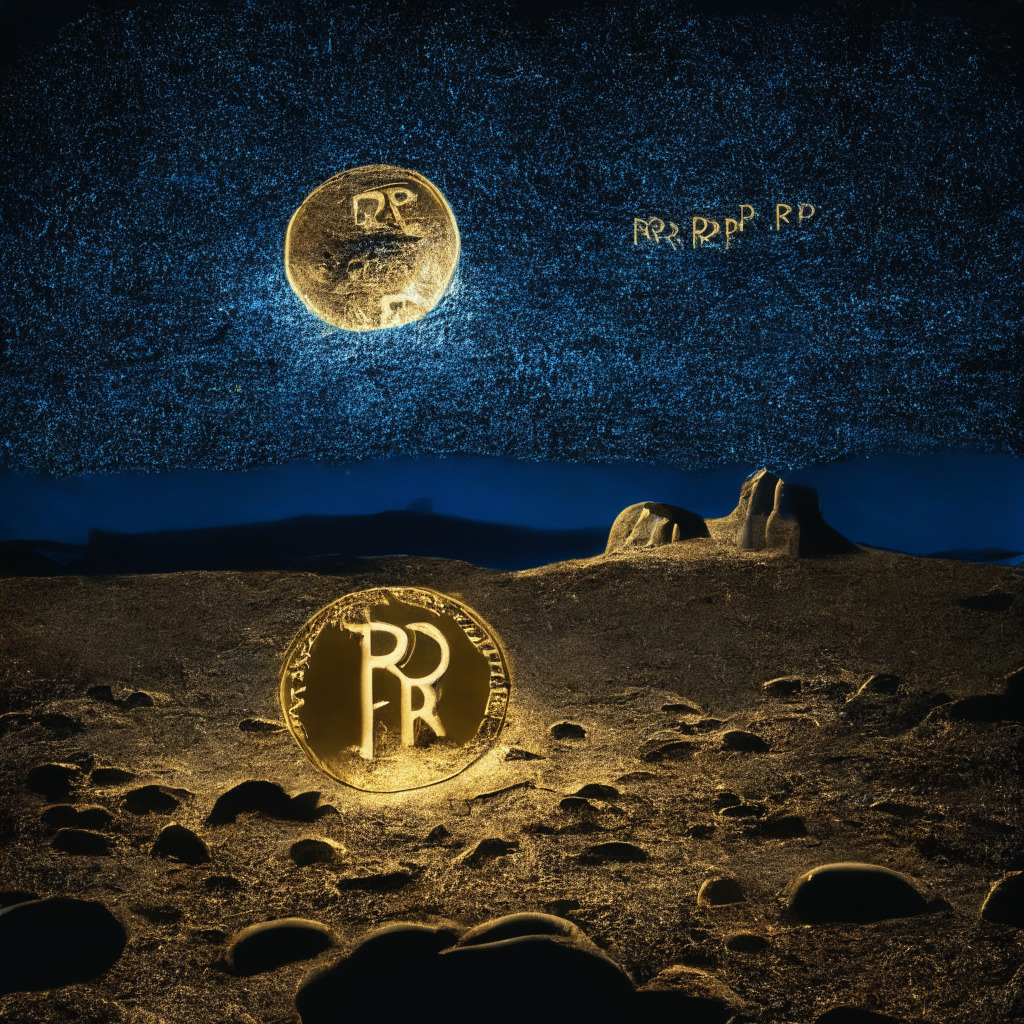“A recent report by CER revealed that only six out of 45 reviewed crypto wallets conducted penetration testing to identify security vulnerabilities. Despite the alarming number, some wallet brands are using alternative methods like bug bounties to uncover vulnerabilities, thereby raising questions about the effectiveness of current security strategies in protecting digital assets.”
Search Results for: ledger
Federal Reserve’s Crypto Oversight: Balancing Innovation and Regulation
The U.S. Federal Reserve is extending oversight of banks involved in the crypto and blockchain sector with the Novel Activities Supervision Program. It aims to balance innovation with risk management, covering crypto-related services including custody, lending, and trading. This move raises questions about the intersection of banking, regulations, and the emerging crypto domain which could shape blockchain’s future.
Balancing Act: Unpacking the Prospects and Challenges in the Adoption of Blockchain Technology
“Blockchain technology guarantees transparency and decentralization, with substantial benefits in security and transparency. On reverse side, it also faces hurdles like market speculation, financial unpredictability impacted by cryptocurrencies prices fluctuation; and problems raised by blockchain’s immutable nature which makes correcting erroneous transactions almost impossible.”
Brazil’s CBDC ‘Drex’: Triumph in Banking or Gateway to Central Authority Meddling?
“Brazil’s Central Bank recently introduced its central bank digital currency, Drex. However, concerns are raised by the currency’s potential for central authority interference, alongside questions about the movement of assets of popular cryptos following the collapse of Silvergate Bank. Advocates, meanwhile, hail the currency’s potential to improve Brazil’s banking sector.”
XRP’s Decline Reflects Crypto Market Instability Amid Legal Disputes and New Partnerships
“XRP price dropped by 3.4% in a quiet crypto market, hinging on Ripple’s legal tussle with the SEC and fluctuating technical indicators. Despite potential losses, partnerships and stablecoin trials give XRP recovery chances. Ethereum-based XRP20, offering income opportunities, might engage XRP-awaiting traders.”
Worldcoin’s Iris-Scanning Identity Project: Breakthrough Innovation or Data Privacy Nightmare?
“Worldcoin, a digital ID crypto project, introduces a digital identity system based on iris scanning to differentiate humans from AI entities. Despite concerns about data privacy, it has secured $115 million funding and over 2 million sign-ups. However, industry experts question Worldcoin’s ability to manage personal information securely.”
Revolut Suspends Crypto Services in US: Analysis and Implications of a Directional Shift
Digital bank Revolut is discontinuing its cryptocurrency offerings to U.S. customers due to the “unpredictable regulatory landscape”. The decision only impacts less than 1% of Revolut’s global crypto customer base. Meanwhile, the company is seeking alternative channels to reinstate its crypto services in the U.S. market.
Dealing with Economic Descent: Lessons from Crypto’s Collapse and Potential for Revival
“Crypto’s potential to facilitate democratic, innovative online governance clashes with reality of insiders controlling power. Post-Terra-Luna collapse, Ethereum co-creator, Vitalik Buterin, proposed deposit insurances for protocols to gain user faith, yet transparency demands often go unmet. Ultimately, crypto’s potential remains boundless, yet trusting implementation is crucial.”
Beeple Buying CryptoPunk #4953: Unpredictability of NFT Value and the Changing Dynamics in the Market
Renowned NFT artist Beeple recently made headlines by purchasing CryptoPunk #4953 for approximately 113.7 ETH or $208,000, marking his first entry into acquiring a profile-picture NFT. This move from creation to collecting signifies a potential shift in the NFT landscape.
Surfing Crypto Waves: CoinShares’ Q2 Triumph Amidst Trading Challenges
“CoinShares’ Q2 revenue increased 33%, heavily backed by the firm’s proprietary trading activities. However, asset management fees saw a 25% decline. CoinShares ventured into decentralized finance, resulting in nearly £9 million from these activities in Q3 2023.”
Blockchain’s Future: Unprecedented Transparency vs. Complex Privacy and Energy Concerns
“Blockchain technology, with its transparency and accountability, brings trust and confidence to numerous sectors, from finance to agriculture. However, significant challenges such as interoperability issues, energy consumption, and privacy concerns need immediate resolution for widespread adoption and realization of a decentralized utopia.”
Navigating the Crypto Landscape: Analyzing XRP’s Resilience and the Rising Promise of Launchpad.xyz
XRP, despite a recent 1% dip and 2% drop last week, has shown resilience with a 50% increase over 30 days and 100% since 2023, due to favorable Ripple-SEC reception and consolidation around $0.70 value. Its technical indicators, including the Relative Strength Index and 30-day moving average, hint at a promising forecast. Ripple’s partnership with the Republic of Palau increases its credibility as a top choice for public institutions exploring blockchain networks.
Unmasking Tech Giants: Are Apple’s App Store Policies Stifling Crypto Innovation?
“Recent actions in the technology sector highlight the relationship between tech giants and blockchain and nonfungible tokens (NFTs). A probe into Apple’s App Store policies by US lawmakers aims to analyze if these guidelines indirectly slow technological progress. The lawmakers raise concerns about the impact of Apple’s rules on innovations like distributed ledger technology and NFTs, and potential negative consequences on the US’s status in emerging technology.”
Alien Influence on Crypto: Extraterrestrial Intervention or Earthly Innovation?
This article explores a radical concept: Could Bitcoin be a non-human creation introduced by an extraterrestrial civilization? It further delves into the role cryptocurrencies could play in denying government control and promoting the decentralized financial autonomy of individuals, citing it as a possible solution to hypothetical celestial monetary systems.
Ripple’s Resilience Amid SEC Trials: Overcoming Adversities in Blockchain Innovation
Despite ongoing legal battles with the U.S. Securities and Exchange Commission, Ripple maintains strong ties with central banks and continues to innovate in the crypto sphere. Their latest venture, a U.S. dollar-pegged stablecoin running on the XRP Ledger, manifests Ripple’s commitment to exploring blockchain potentials.
The Intriguing Prologue of Central Bank Digital Currencies: Boon or Bane?
Central banks worldwide are exploring Central Bank Digital Currencies (CBDCs): digital versions of their currency eliminating intermediaries. This development claims cost-saving potential and policy-making tools but carries risks. Without private banking, government surveillance increases, the market economy may stagnate, and individual protections decrease. Politically-motivated fund allocation also becomes possible. Therefore, while CBDCs may appear attractive, comprehensive discussions around the dangers and ethical use are needed.
Unveiling EU’s First Tokenized Equities: A Game-changer or a New Challenge?
Securitize has issued the first tokenized equities under the EU’s digital assets framework via the Avalanche smart contract network. These tokens represent equity in Mancipi Partners, a Spanish real estate investment trust. This move signifies a blending between traditional capital markets and crypto, potentially signaling a shift in the financial landscape that could see the tokenized assets market reach $16 trillion by 2030. However, this emerging sector requires careful navigation with thorough regulatory oversight.
UK’s Electronic Trade Documents Act 2023: A Blockchain Revolution in Trade Documentation
“The Electronic Trade Documents Act 2023, passed in the UK, enables the digital storage and distribution of trade documents, potentially leveraging blockchain technology. This could enhance security, compliance, and record traceability, and improve workflow efficiency, while considering reliability and security challenges.”
The XRP Surge: Fed Rate Hikes, Ripple’s Triumphs, and the Presale Token Marketplace
The XRP price increased by 2% following the Federal Reserve’s base rate increase. Despite dropping 12% in a week, XRP’s value has risen 50% in a month, boosted by a favorable verdict from SEC and a collaboration with Palau for a stablecoin trial. This is expected to further enhance XRP’s value and there’s no expected limit on the upward trend.
Institutional Embrace of Altcoins Amid Regulatory Uncertainties: A Deep Dive
Institutional investors have surged their investments in altcoin-based products such as XRP, Stellar’s XLM, and Solana’s SOL, despite a tentative market sentiment. Products based on these coins saw significant growth in assets under management, with Stellar’s XLM witnessing a remarkable 62.7% increase.
Securing Cryptocurrencies: The Silent Threats Lurking in Paper Wallet Generators
“Blockchain security firm CertiK has warned users about the risks associated with popular wallet generators. Incidents involving vulnerabilities and hacking events from these services underline the precarious nature of crypto security. Users are therefore advised to carefully consider their crypto storage and adopt practices that best safeguard their investment in the decentralized world of cryptocurrencies.”
Emerging Crypto Capital: France’s Rise in the Global Blockchain Landscape
“France emerges as a key player in the global crypto stage, thanks to supportive regulators, robust Web3 development, and a thriving talent community. The country’s inclusive attitude towards crypto, flexible regulatory framework, and significant investments in technology sectors positions it at the forefront of the European crypto ecosystem.”
Pacific Paradise or Peril: Palau’s Intriguing Journey into Blockchain and Stablecoins
The Pacific island nation of Palau is testing its own dollar-pegged stablecoin, with considerable assistance from Ripple. The project’s future is contingent upon a report to the nation’s government, deciding if the initiative will be fruitful long-term. Palau is also exploring blockchain technology in digital residency applications and plans to establish its own cryptocurrency exchange.
The Inevitable Clash: Central Bank Digital Currencies Versus Private Banks
“Central bank digital currencies (CBDCs) aim to regain monetary control by utilizing the blockchain, posing a threat to private financial institutions. Amid this, 93% of central banks are conducting CBDC research, predicting 24 CBDCs in circulation by 2030.”
Regulatory Deception or Protection? The South Korean Crypto Lending Crisis Unraveled
South Korea’s financial regulator has seized the assets of local crypto lending firm, Delio, following the company’s ongoing legal disputes and asset seizure operations. This has halted interest payments and operations, provoking skepticism among its depositors. Accused of fraud, embezzlement, and breach of trust, Delio now faces possible collapse. The situation sparks debate around the level of regulatory vigilance necessary in the crypto world.
Navigating the Future: South Korea’s KEB Hana Bank and Blockchain-based Currency Systems
South Korea’s KEB Hana Bank is actively collaborating with the Central Bank of Korea in developing blockchain-based currency systems and exploring tokenized deposits. The bank is also investing heavily in research related to the crypto sector, including areas beyond traditional banking like real estate. The potential growth of the domestic security token market is predicted to reach $27 billion next year.
Uncovered: The Dark Side of Digital Currencies – A Billions-Value Bitcoin Laundering Saga
New York-based couple, Ilya Lichtenstein and Heather Morgan, are set to confess in a conspiracy to launder billions in Bitcoin connected to the 2016 Bitfinex hack. While not involved in the hack, their involvement in laundering the funds brought legal consequences. Their case highlights the potential misuse of digital currencies and the urgency for robust regulatory safeguards.
Analyzing XRP’s Future: Court Rulings, Network Adoption, and Price Volatility
“The future of XRP is driven by market speculation and network adoption. With a mix of positive regulatory development, technical progress, and increased retail user base, XRP’s downward trend could potentially end. However, near-term future volatility is expected.”
Unmasking the FCA’s Digital Sandbox: Breeding Ground for Fintech Innovation or Big Brother?
The UK’s FCA transitions from trial to success, unveiling a permanent version of its Digital Sandbox on 1 August 2023. The sandbox provides resources like data sets, APIs, and security protections to firms, aiding technological testing and inviting wider involvement from innovative businesses, start-ups, and data providers. This innovation also supports a range of digital asset use cases and fintech products, ensuring a secure environment for experimental concepts.
Decoding French Central Bank’s Wholesale Digital Currency: An Overview and the Environmental Paradox
The French Central Bank highlights the potential of a wholesale central bank digital currency (wCBDC) to improve the safety, settlement certainty, and efficiency of cross-border transactions. It reports successful tests of wCBDC paradigms based on distributed ledger technology (DLT) and foresees benefits for native digital and tokenized assets. The bank also emphasizes the need for energy-efficient solutions amidst global sustainability concerns.
FCA’s Sandbox: An Innovation Playground or a Risky Experiment for Blockchain Technology?
The U.K. Financial Conduct Authority is offering firms access to a digital sandbox for testing their products’ early-stage performance. The sandbox provides datasets, APIs, and data security protection. This initiative helps firms evaluate products, supports various digital-asset use cases and fosters an ecosystem of integration within the digital economy. The sandbox’s broader availability piques crypto enthusiasts’ interest, prompting discussions around blockchain technology’s future.
Exploiting Regulatory Advancements: France’s Bullish Stance on Crypto versus US’s Control Approach
France is advocating for regulatory certainty in cryptocurrency, embracing the forthcoming MiCA EU laws, and a pro-innovation approach contrasting the U.S. notably, crypto powerhouses like Binance have registered under France’s crypto law PACTE. However, this doesn’t exempt them from legal scrutiny. France’s conducive crypto environment also offers strong technological competence for ventures.































